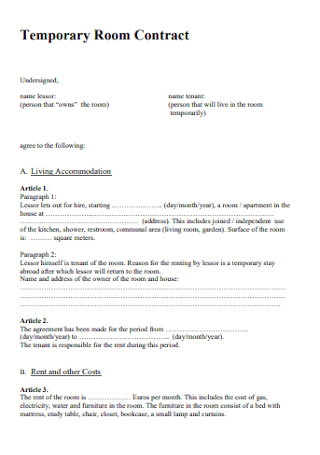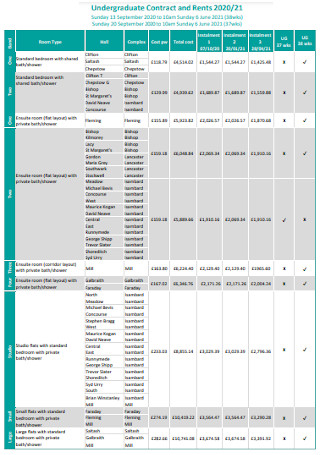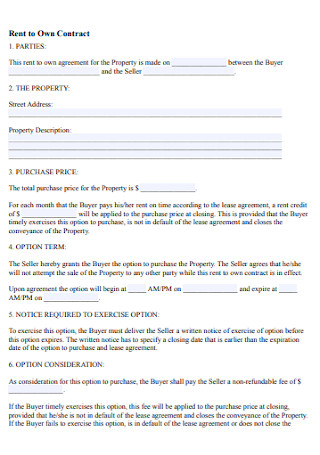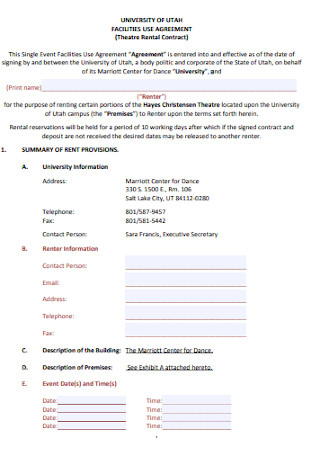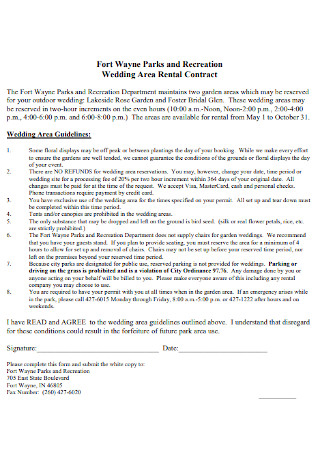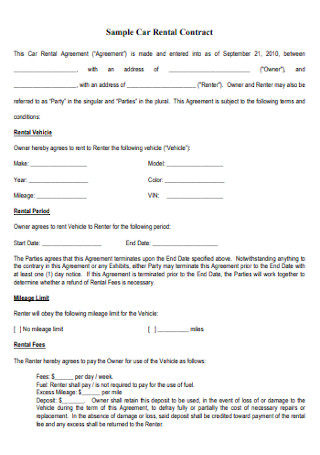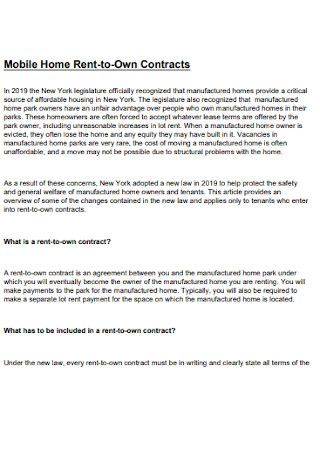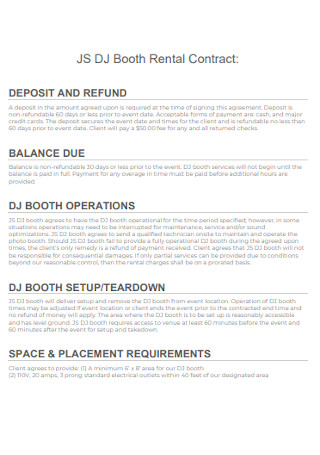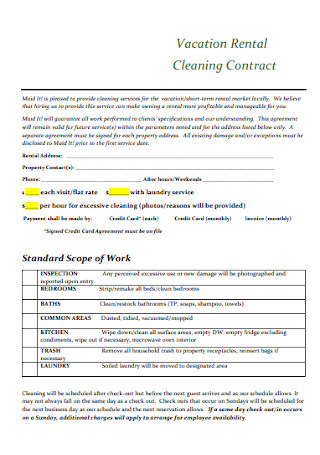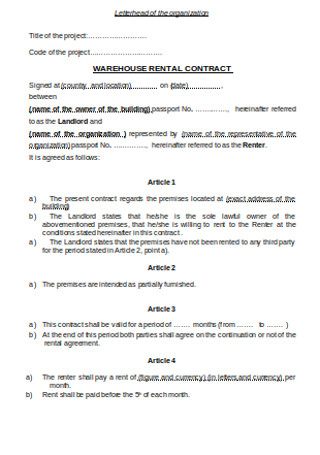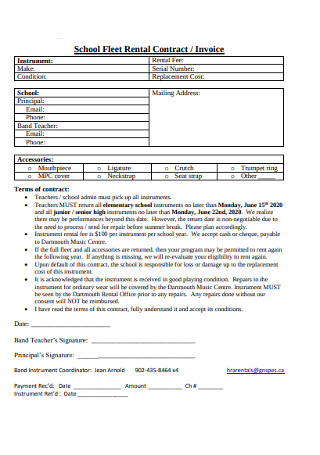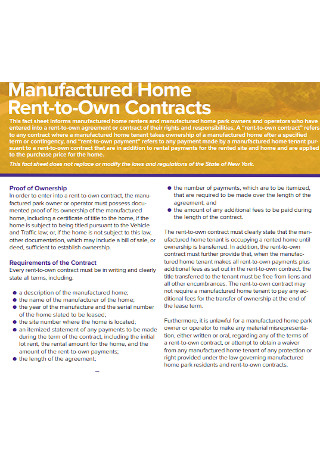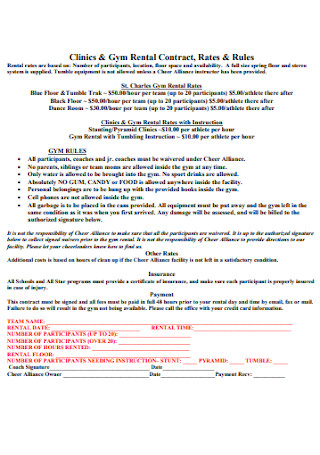12+ Sample Rent Contracts
FREE Rent Contract s to Download
In this article, we prepared 12+ rent contracts of various kinds and highlighted some features unique to selected types of rent contracts for usual business transactions that need one. We also list down the most basic components of a rent contract that individuals who plan to rent a property should look out for. Read more so you can start drafting one of your own with our downloadable samples!
What is a Rent Contract?
A rent or rental contract is any legal document preferably written between an owner of a property and a renter who wants to temporarily be in possession of said property. It typically identifies the parties involved, defines the property to be rented, the rental period, the rent amount and the terms and conditions that the renter must comply with to properly execute the rental transaction. While the terms and conditions are generally prepared by the owner of the property, the renter still has the ability to modify said terms and conditions as they deem fit the situation but shall be agreed upon by the owner.
Rent contracts can be used for a lot of different reasons that are not necessarily exclusive to home, apartment or car rentals. Other properties that can be rented and may require the need to establish a rent contract can include: tools, textbooks, dresses, camera lenses, Christmas trees and even pets. However, their contracts ideally should not be as complex as that of an apartment rental and should only require the basic components of a rent contract. Nevertheless, it still can require a rent contract to formally establish the transaction and serve as proof that such a transaction exists compelling the parties involved to fulfill what was agreed upon.
Types of Rent Contracts
As mentioned, there are different situations in which a rent contract can be prepared by the owner of a property. While situations may vary, there are usual scenarios that call for the need of a rent contract. We list two of them below:
For an Apartment Rental Contract, the parties involved are called landlord, who is the owner of the property, and the tenant, who is the renter of the said property. This is not to be confused with a Lease Contract because while both function to legally bind the tenant and a landlord, they serve different purposes with the main difference relying on the length of the contract.
A lease agreement typically lasts for six months to a year or more while a rental agreement expires at the end of the month and renews itself at the beginning of the following month if agreed upon by both the parties unless the tenant wishes to terminate the contract or if the landlord no longer wants the tenant to stay.
While there isn’t any stark difference between the two aside, the main point is that both allow for the temporary possession of a property to a renter who is capable of fulfilling the conditions of the rental and its accompanying payments. In an apartment rental contract, the landlord generally has the general upper hand in setting out the terms, as is the case in most contracts and it most times is fixed, however, because the contract expires by the end of the month, modifications to the contract is allowed if the tenant were to continue their stay and they wish to have a few regulations changed or if the landlord themselves were to make additional rules.
Common regulations included in a rent contract that apartment settlers, tenants and occupants need to comply include:
Pet policies: For our fur parents, the pet policy of an apartment complex is usually something that is immediately sought for and used as a basis before even considering the location. While some properties restrict pet ownership, some can be lenient provided that the pet owners abide by the landlord’s rules and the pet themselves allow do not require so much fuss with regards to pet care. Some of these rules and regulations limit the type of pet that is allowed and their number, while some can even be strict about the kind of breed that is allowed in the unit. Pets can also come with an additional fee apart from the apartment fee. However, these limitations and a no-pet policy can be dismissed when the ‘pet’ in question is a service animal that functions to assist individuals with disabilities and this is in accordance with Americans with Disabilities (ADA) that prohibits landlords from implementing any kind of pet restrictions and charging pet fees. Security measures: While it is the duty of the landlord to strictly implement security policies to secure their tenants from terrifying, borderline life threatening experiences like home break-ins, they can also add clauses in the contract that won’t hold them fully responsible for any damage and theft of personal property in the case of burglaries.Residential Use: A basic rule imposed by landlords on their occupants is the use of the property for strictly residential purposes only and to abide by the rest of the rules, laws, and health measures so as to avoid tenants from committing acts that may negatively impact the reputation and status of the property. Cleanliness policies: It is a common duty of all homeowners in general to keep their properties clean and tenants who are temporarily residing in the apartment unit are not exempt from this. To keep the cleanliness of the building, it is imperative that tenants personally do the cleaning of their individual spaces. Landlords can also require the tenants to properly segregate their trash, dispose of it in the appropriate spaces and recycle what can be recycled otherwise, their garbage won’t be picked up. It is then important for property owners to develop a waste management plan of their own and provide the proper spaces for the disposal of these wastes. Other policies with regards to maintaining cleanliness can include the managing of insect infestations in the unit.
An apartment rental contract includes key essential terms that logs the tenants’ information, the required number of occupants, details on deposit, payment fees and additional charges, the condition of the premise and who else is occupying the premise, and most importantly the length the tenancy period will take effect.
Car rentals allow for individuals who see no need to personally own a car the chance to temporarily own one primarily for convenience sake or for families and friends in an unfamiliar country for a trip who wants to accomplish their vacation checklists and a guaranteed way to do so is to hire a car to be used only during the length of the stay. Especially during the pandemic where social gatherings are prohibited and thus stopped public transportations from functioning albeit temporarily until strict observance of health protocols allowed for loose social mobility, there was an increased demand for car rentals to help individuals fulfill daily activities and/or accomplish administrative tasks or work from home duties. This is so because it offers numerous benefits such as possible protection from virus contamination, convenience in carrying out tasks with some car rental companies offering car rental programs for an hour, and a cheaper mode of transportation that is less costly as it rids one of being financially burdened to make monthly payments for car insurance, maintenance fees, additional advanced technologies for better and safer performance of the car and damage repairs.
Car rental contracts are unique from its other rental contract counterparts because of the following features:
Car rental details: A car rental contract outlines the complete information of the leased car and this can include specifications such as the car model, license plate, vehicle category and more. Fuel and Mileage Limit: Car rental agreements can vary from car rental companies to another. A discretion that is usually changed is the provision of a mileage limit as some contracts will offer unlimited mileage while others would have to require renters to not exceed the mileage limit otherwise, additional charges will have to be incurred for every excess kilometer. Car rental companies will also impose a full-to-full policy that requires renters to return the car with a full fuel tank the same way the car was leased with the same fuel capacity. Illegal parking cases: It is important for a car rental contract to outline the acts a renter is prohibited to do during the whole duration of the rental period as well as the consequences of such acts and what can be done to resolve it. An example is when a renter violates road traffic laws using the leased car. The contract must explain what is to be done by the renter which can be to appear before a police station with jurisdiction over the location where the violation was committed. The renter could also be responsible for making payments for the violation fine for illegal parking, the towage charge, storage and pick up among many others depending on what is deemed necessary to be paid.GPS system: In order to locate the whereabouts of the rental vehicle for documentation purposes, the renter and the rental company can come to an agreement that a global positioning system (GPS) be equipped in the vehicle with the company gaining power to use the recorded information for purposes that have to do with confirming the return of the car in the established location and confirming its present location. It is also important to add a clause that allows the car rental company to disclose the information in the event that deems it necessary, a clause that the renter must understand and agree to. Dashboard camera: In the same manner that a car rental contract must disclose the use of a GPS system and its purposes, the contract shall also define what a dashboard camera equipped in most leased cars will be used for. It mostly has to keep a recording of the drive that the company can use to confirm the circumstances in which an accident involving the rented vehicle occurred. The renter has to also acknowledge if a rental company were to require having the right to disclose the recorded drive if a situation arises that makes it necessary to be disclosed. Liability for Compensation: If the driver of the rented vehicle were to get into an accident during the rental period leading to the breakdown of the vehicle or its mechanical parts damaged that it can no longer be used for the time being, the renter is legally required to make the necessary payments prescribed by the rental company to serve as compensation for the period the rental car cannot be used therefore impeding business profitability.
Inside a Rent Contract: Common Features
Below are some basic items that all rental contracts must provide. Read more to familiarize these concepts.
Renter Information: As what the name suggests, a contract must firstly identify the renter in question. This includes extracting the most basic but the most important personal information of the renter. Along with providing this, some renters will require additional verification and will require the renter to present government-issued identification cards like a driver’s license and passports, or for tourists, flight tickets and even proof of accommodation. Car rentals are very strict on identity verification so as to avoid scheming car renting syndicates. It is important that the personal information is logged as it serves as proof that the renter has acknowledged, read, understood, and agreed to the terms and conditions stipulated in the rent contract more so once they affix their signatures in the contract. For apartment contracts where it is possible to have more than one tenant, all names of those living in the rental unit must be identified as well.Rental Property: The rental agreement must describe the pre-existing conditions of the property before the renter can even rent it. It is also the duty of the renter to conduct their own rental inspections of the property to assess if the conditions provided by the owner are in fact accounted for. This is to protect the renter in the case that the owner were to claim that damages to the property were made during the rental period and insist on charging you with additional payments to compensate for it. Rental Period: To say you are renting a property suggests that there is a specified length of time until you must return the said property to its rightful owner. A rent contract must determine for how long this time is and when it shall end and begin. This is important so that the renter understands for how long they have to fulfill the contract and basically how long the property is in their possession. In the case that a renter should return the property earlier than what was agreed upon, a notice to vacate shall be forwarded to the owner as is usually the case that occurs in apartment rentals. In the event that this happens, penalties may be incurred which also has to be explicitly mentioned in the contract and acknowledged by the renter. This is to ensure that the landlord is protected from profit loss due to the contract not being fulfilled which essentially means an interruption in income cash flow. Rent amount: Another important section that must be included in the rent agreement is the rent amount. It should also state when the rent amount is due and how the rent is to be paid. Rental responsibilities: A good chunk of the contract must outline the obligations a renter must fulfill for a successful and proper completion of the contract. Along with these responsibilities are the conditions that will serve as basis for the prohibition of specified acts as well as consequences that may be imposed on the renter if they were to violate the terms stated in the contract. Rent termination: An effective rental contract includes the terms that can precede the termination of contract which is expected since again, renting is temporary. When a contract is concluded, this basically means the parties involved have successfully fulfilled their responsibilities and can now end the agreement. Sometimes, however, contracts do not end well especially when one party violates the obligations they are to perform which is another basis that can call for contract termination. Because this is likewise as inevitable as the conclusion of the arrangement, the document must also indicate the terms that can serve as grounds for breach of contract.
FAQs
How do I Write a Rental Agreement?
In summary, rental agreements can begin with identifying the parties involved in the transaction. It can then be followed by describing the specifications of the property and its conditions. Specifying the duration of the agreement can follow and then the rent amount that must be paid and when it is due. A contract should also outline the rights granted to the parties and the obligations they are to perform for the successful execution of the rental agreement.
What is the Difference between a Lease and a Rental Agreement?
The primary difference between the two, although both can be interchanged, lies in the duration of the agreement. Leases, in general, tend to last for a year or so while rental agreements last for a month.
Is Leasing Cheaper than Renting?
Depending on the kind of rent agreement, there is no definite answer to this question. Renting a car is cheaper for those who do not necessarily need to own a car in states where public transportation is as good as owning one. Apartment leases are typically encouraged to tenants because rent is fixed as opposed to rental agreements that are susceptible to changes depending on market conditions and if the landlord were to decide to increase it. The most important question to raise, rather, is if your financial conditions can afford either of the two arrangements.
